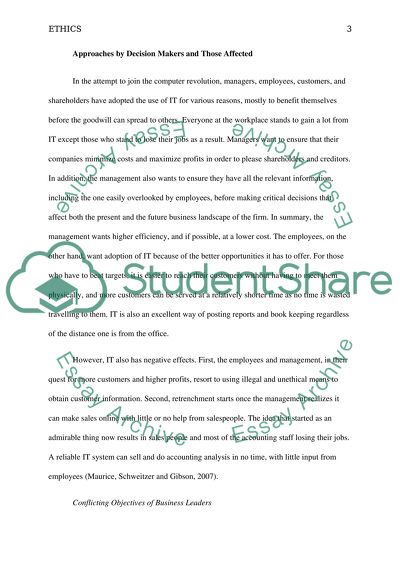Cite this document
(“Ethics Coursework Example | Topics and Well Written Essays - 1750 words”, n.d.)
Retrieved from https://studentshare.org/information-technology/1393305-ethics
Retrieved from https://studentshare.org/information-technology/1393305-ethics
(Ethics Coursework Example | Topics and Well Written Essays - 1750 Words)
https://studentshare.org/information-technology/1393305-ethics.
https://studentshare.org/information-technology/1393305-ethics.
“Ethics Coursework Example | Topics and Well Written Essays - 1750 Words”, n.d. https://studentshare.org/information-technology/1393305-ethics.


